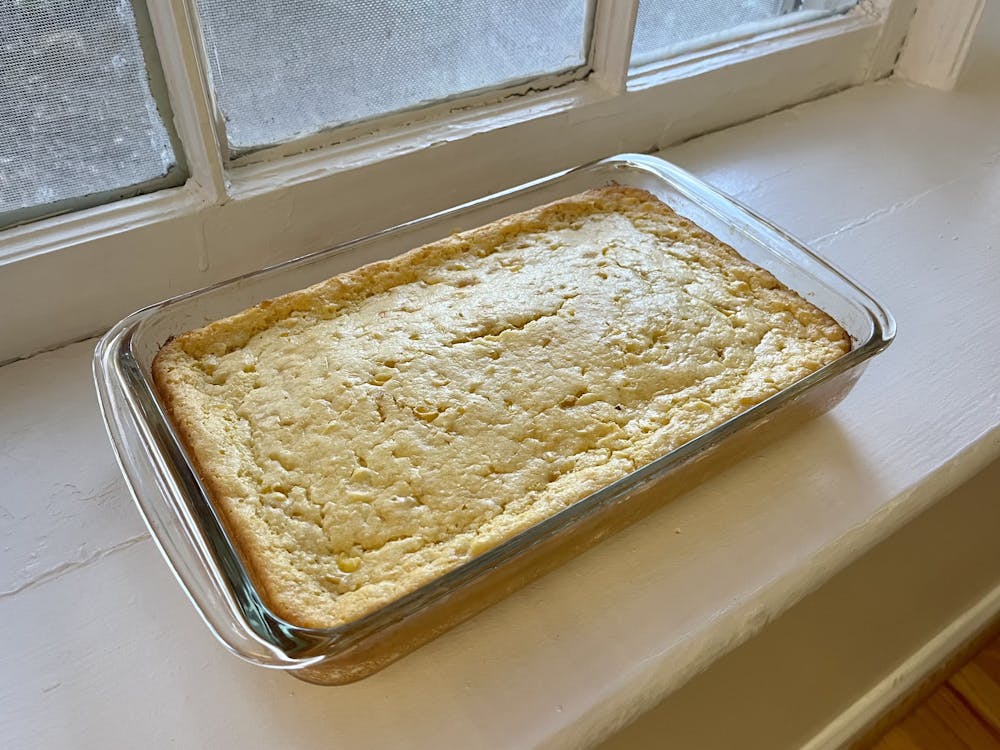Once upon a time, there was a young girl in a suburb holed up in her basement with piles and piles of construction paper, glue sticks, stickers and glitter strewn all around her as if a local Michaels had exploded. With plastic scissors in hand, she furiously cut through thick stacks of multicolored paper spewing blue/red/green petals and leaves. It had already been four hours, yet none of her three-dimensional flowers looked just right so she kept on working — the pile of rejected prototypes growing larger by the minute. Around midnight her mother came down, squinting through heavy-framed glasses.
“It’s way past bedtime, time to let it go,” she gently pushed.
“It’s not finished!” the girl cried.
The mother picked up a poster, purple flowers artfully arranged amidst graphs and a title reading, “The Effect of Different Sodas on the Growth of Flowering Plants.”
“What’s not finished? This is beautiful.”
The girl held back tears of frustration and repeated, “It’s not finished.”
With a sigh, her mother plopped down in her linen pajamas, picked up a pair of scissors, and began cutting petals so she could help the girl “finish” before sunrise.
If you hadn’t gathered already, that girl is me. This narrative was not a one-time deal but a constant ritual whenever a school project came around. I would spend hours in the basement perfecting a poster way into the night. Usually around midnight, my resolve would crumble and tears of exhaustion/frustration would press against the back of my eyelids until my mom would come down and serve as my poster sous-chef. Then I’d wake up and make last minute touches before hefting my masterpiece to school, stickers stuck to my face and glitter in my hair.
Gradually I learned more time management skills, schools assigned less poster projects and my mom stopped helping me cut paper, but this perfectionism clung to me up until now. From the silly time I spent an entire snow day redoing my 10th grade science fair project to the not so silly time I spent obsessing over my diet and weight, perfectionism has been more or less a part of who I am.
Just this past weekend, however, I went on a leadership retreat for an organization. Smack-dab in a cabin in the Blue Ridge Mountains, we were told to reflect about our visions as leaders for next year. Part of our reflection assignment was to “create” something expressing our feelings and/or what we were hoping for.
Once again I found myself amidst a mess of construction paper, glue and glitter. I was instantly drawn back to my tantrum filled days in the basement, ripping up things I made that weren’t good enough.
This time, however, I was told to not worry about how the product turned out but focus on my emotions while creating and the significance of the product, regardless of what it looked like.
The task seemed simple enough, but as I was trying to “draw for the sake of drawing,” I couldn’t do it. Every line was frustrating, a visible sign that I hadn’t adhered to the ideal I had. My hands itched for the eraser so I could obliterate each imperfection and start over.
As I erased yet another blemish, my stomach knotted. Did I know how to be satisfied with what I had done if I hadn’t poured gallons of blood, sweat and tears into it? If it wasn’t molded into a perfect image, could I look at it and say, “That’s finished?” Since my brooding days in the basement often brought praise from peers and good grades on projects, I internalized that the only way to feel proud of my accomplishments was after days of stress, overwork and exhaustion. If I hadn’t cried at least once, I had not done enough.
I recognized this is probably not healthy. If the only way I feel I’ve done well is to work myself to the point of tears, then no wonder I get burnt out and exhausted. There is striving for excellence and then there is tying your self worth to the number of hours you spend studying.
So perhaps for the first time in a really long time, I let go. I drew for the sake of drawing and tried not to worry about what it looked like. I spent maybe 10 minutes on my creation rather than the hours and hours I would have otherwise spent on such an assignment. Then, I blew off the eraser shavings and looked at what I had made.
It wasn’t perfect. I could point out some disproportions and where the colors didn’t quite fit. But it was good. It was excellent even. I said, “This is finished,” and I hadn’t cried at all. In fact, I felt rejuvenated.
I learned exhaustion is not the only path to excellence, and it’s certainly not the best path. As I sit preparing for the next exams — and impending doom of finals — amongst my mess of notes, flash-cards and colored pens, I’m trying to keep this thought in mind. Excellence is not synonymous with perfectionism. Not every test or project has to be grounds for PTSD.
So to the little girl crying with her mom in the basement — first of all, thank your mom a whole lot for her irrational, loving self-sacrifice. Second, those flowers are flippin’ awesome. Pull the sticker from your face and set down those scissors with satisfaction. You have done well.





